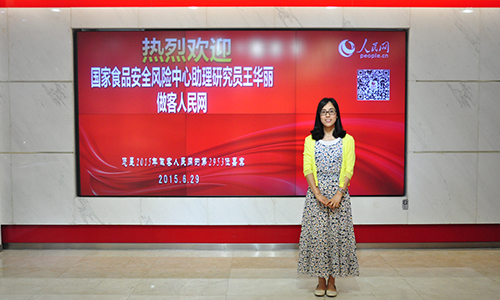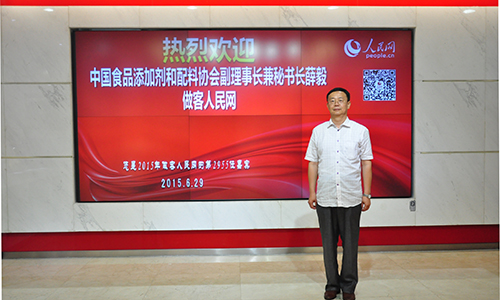The concept of "zero additive" that does not harm preservatives or is bigger is created by merchants.
Beijing, July 1 ST (Wang Yupeng) "Eating pigment, we are still black-eyed and yellow; Eating preservatives, we can’t become mummies. " When talking about whether food additives are harmful, Huali Wang, an assistant researcher at the National Food Safety Risk Center, made an analogy. She stressed that as long as it is used within the limits and scope stipulated by the national food safety standards, food additives will not cause harm to the human body. Xue Yi, vice chairman and secretary general of China Food Additives and Ingredients Association, reminded that while eating with confidence, we should also pay attention to the concept of "zero additives". [Interview: Huali Wang and Xue Yi talk about food additives you don’t know]

The picture shows Huali Wang, assistant researcher of the National Food Safety Risk Center.
What is the use of food additives?
Food additives mainly play the role of preventing deterioration, improving taste and ensuring uniform quality.
"Foods have a certain shelf life. If preservatives are not used, microorganisms will grow and reproduce, but they will be harmful to health, such as the aflatoxin, which is more harmful than arsenic." Huali Wang also stressed that "the first condition for using preservatives is to comply with national food safety standards. At present, some unscrupulous traders use preservatives to cover up the defects in food raw materials, which should be severely cracked down. "
As for the thickener in ice cream, Huali Wang introduced that its main function is to make the food form a gel state, so as to make the food have a more suitable taste. Thickeners are starch and gum, and most of them come from natural foods, such as sodium alginate and agar. There is also a non-dairy creamer called "creamer", which is often used in coffee and other beverage products. The main purpose is to bring a smooth and thick taste.
In the large-scale processing process, food additives also help to ensure the uniformity of product quality. Xue Yi said: "Under the premise of huge processing volume, if there are no food additives, the ham sausages that consumers buy today are of this taste and color, and what they buy tomorrow may be different."

Xue Yi, Vice Chairman and Secretary General of China Food Additives and Ingredients Association
Are edible additives safe?
Since food additives are indispensable, how to ensure that they will not endanger health?
Xue Yi introduced that the use of food additives in food processing is restricted by clear national food safety standards, and there are strict regulations on what kind of food and how much each food additive is used. At present, there are 2334 kinds of food additives allowed by national standards, which are lower than those in the United States and Japan.
"When we evaluate the safety of food additives, we consider two aspects, one is long-term and the other is large." Xue Yi said, "A lot, that is, measured by the dosage of food additives as meals every day; Long-term, that is, measured by the length and intensity of daily consumption for life. Then take the safety factors of these two aspects as the scientific basis for us to formulate standards. "
Xue Yi emphasized that as long as food additives are used in accordance with the standards, safety is not a concern. But at the same time, we should be careful about the concept of "zero additive".
"’zero additive’ is often a concept made by merchants." Xue Yi said, "At present, food processing conditions and large-scale production methods have rarely required the use of additives. Even some canned foods sterilized at high temperature and high pressure or honey with high sugar content do not need additives themselves, and there is no need to gild the lily with’ zero additives’. Therefore,’ zero additive’ is mostly a concept put forward by merchants to sell products well or to meet some requirements of consumers. "